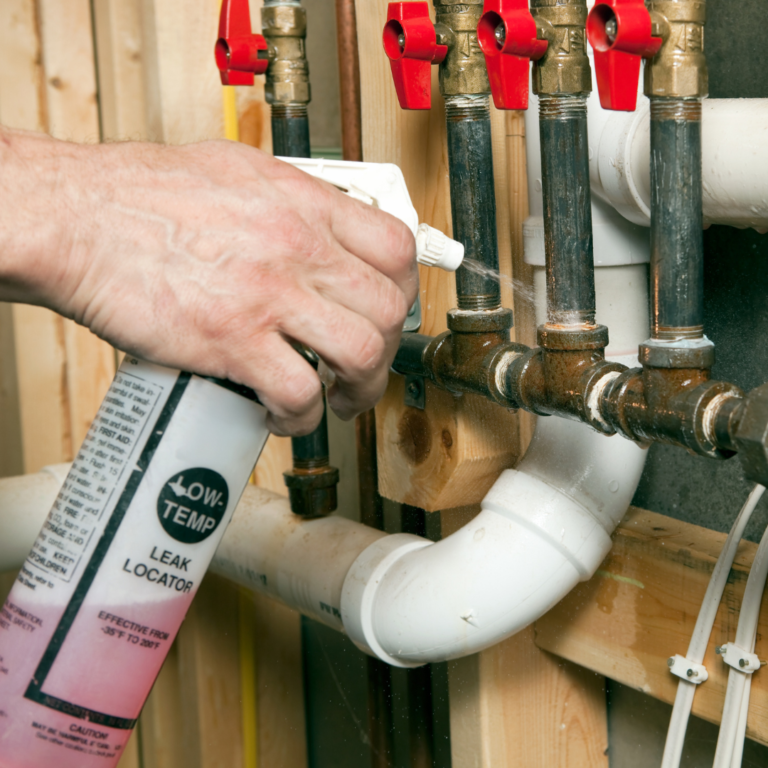Why Gas Lines Need Cleaning
Gas lines are crucial components in many residential, commercial, and industrial settings. They supply natural gas or propane to fuel appliances, heating systems, and industrial processes. Over time, gas lines can accumulate debris, corrosion, and other contaminants that hinder their performance and pose safety risks. Regular cleaning of gas lines is essential for several reasons, including safety, efficiency, and longevity of the system.
Ensuring Safety
Preventing Gas Leaks:
Debris and Corrosion:
Accumulated debris and corrosion inside gas lines can lead to blockages, increasing pressure within the system and causing leaks.
Damage Prevention:
Regular cleaning helps identify and address small issues before they escalate into significant problems, such as ruptures or explosions.
Avoiding Carbon Monoxide Poisoning:
Incomplete Combustion:
Blockages and contaminants can cause incomplete combustion of gas, leading to the production of carbon monoxide (CO), a colorless, odorless, and deadly gas.
Proper Ventilation:
Clean gas lines ensure that gas appliances operate efficiently, reducing the risk of CO buildup.
Improving Efficiency
Optimal Gas Flow:
Unobstructed Path:
Clean gas lines ensure an unobstructed path for gas flow, which helps appliances and systems operate at their highest efficiency.
Consistent Pressure:
Regular cleaning maintains consistent gas pressure, which is vital for the proper functioning of gas-powered equipment.
Energy Savings:
Reduced Fuel Consumption:
Efficient gas flow means appliances use less fuel to achieve the desired performance, resulting in lower energy bills.
Enhanced Performance:
Appliances and systems run more efficiently, leading to better performance and longevity.
Prolonging Equipment Life
Reducing Wear and Tear:
Minimized Strain:
Clean gas lines reduce the strain on gas-powered appliances and systems, decreasing wear and tear.
Preventive Maintenance:
Regular cleaning helps in the early detection of potential issues, allowing for timely maintenance and repairs.
Preventing Corrosion:
Corrosion Inhibitors:
Regular cleaning can involve the use of corrosion inhibitors that protect the interior surfaces of gas lines, prolonging their lifespan.
Material Integrity
: Removing contaminants and moisture helps maintain the integrity of the gas lines, preventing premature deterioration.
Compliance with Regulations
Adhering to Standards:
Safety Codes:
Regular cleaning ensures compliance with safety codes and regulations set by local authorities and industry standards.
Inspections:
Clean gas lines facilitate easier and more thorough inspections, helping to meet regulatory requirements.
Methods of Cleaning Gas Lines
Mechanical Cleaning:
Pigging:
A common method where a device known as a “pig” is sent through the gas line to remove debris and buildup.
Brushing:
Specialized brushes can be used to clean the interior surfaces of the gas lines.
Chemical Cleaning:
Solvents and Inhibitors:
Chemical solutions are used to dissolve and remove contaminants, as well as to prevent future corrosion.
Hydraulic Cleaning:
High-Pressure Flushing:
Using high-pressure water or gas to flush out debris and buildup from the gas lines.
Conclusion
Cleaning gas lines is a critical maintenance task that ensures the safety, efficiency, and longevity of gas-powered systems. Regular cleaning helps prevent gas leaks, carbon monoxide poisoning, and equipment malfunctions, while also enhancing energy efficiency and compliance with safety regulations. By employing appropriate cleaning methods and adhering to a regular maintenance schedule, property owners and operators can protect their investments and ensure the reliable operation of their gas systems.
FAQs:
Why is it important to clean gas lines?
Regular cleaning of gas lines is important to ensure safety, improve efficiency, and prolong the life of gas-powered systems. It helps prevent gas leaks, carbon monoxide poisoning, and blockages that can hinder the performance of gas appliances and systems.
How often should gas lines be cleaned?
The frequency of cleaning gas lines depends on the type of gas used, the age of the system, and usage patterns. Generally, it’s recommended to have gas lines inspected and cleaned every 1-3 years. Consult with a professional to determine the best schedule for your specific situation.
What are the signs that gas lines need cleaning?
Signs that gas lines need cleaning include reduced efficiency of gas appliances, unusual noises, increased energy bills, and the presence of rust or debris in gas-powered equipment. Regular inspections can help detect these issues early.
Can I clean my gas lines myself?
Cleaning gas lines is a complex and potentially dangerous task that should be performed by trained professionals. They have the necessary tools and expertise to safely and effectively clean and maintain gas lines.


